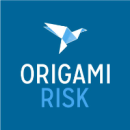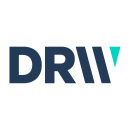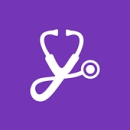Getting coffee, making copies and running errands for managers: These were all tasks Gracie Hart was not asked to do during her internship at edtech company AllCampus. Instead, the accounting major participated in the company’s annual audit, prepared month-end close reports and managed the accounts payable function.
For Hart, interning at AllCampus provided a critical opportunity to gain real-world experience in accounting and to better understand where her skills best lent themselves.
“At the time, I had a solid educational foundation but had never been able to apply those skills to real-world challenges,” said Hart. “After familiarizing myself with the different functions of an accounting department, I quickly discovered where I excelled and what types of projects I wanted to work on.”
Hart is now a staff accountant at AllCampus, and her experience is not unique — at least not in Chicago. The Windy City is full of tech companies that give interns and fresh grads room to grow by trusting them to do real work and giving them access to senior team members. Built In spoke with Hart and four other Chicago tech workers about how their companies set them up for early career success.
Companies in risk and insurance use Origami Risk’s platform to manage and track data related to risk, safety, compliance and more.
When you first started at Origami Risk, how did the onboarding process set you up for success in your role?
I started at Origami Risk as an intern and was set up for success from the very beginning. Our internship program has always emphasized real-world experience by assigning interns actual client project work. That was intimidating at first, but my stress was alleviated by the support system they provided. During the summer, I was paired with a peer mentor to assist with growing my skill set and managing my workload, and a team mentor to provide greater insight into bigger-picture industry and company topics.
In addition to those resources, we were urged to collaborate and share any new skills or resources we learned among ourselves. All these things together enabled me to learn and grow free of worry, which is critically important so early in a career.
What goals did you have for growth when you joined Origami Risk, and how did structures, managers or opportunities support you in reaching those goals?
I studied information systems in college, which heavily influenced my early career goals. My first role at Origami was within our service division implementing our software in direct partnership with clients. My responsibilities aligned very closely with what I had studied, and at the time, I intended to continue growing on that career path.
I had weekly calls with my manager and he would often ask about my goals and passions, in business and life. I would tell him how I was passionate about problem-solving and how that fit with my current role but that I also wanted to explore the strategic side of business at some point. He was always receptive to my aspirations, so much so that he sent me the internal job posting for a role on our operations team.
The description spoke to what we discussed during our calls and he supported me as I went through the interview process. I was offered the role and have been a part of our operations team ever since. I could never have imagined my career path materializing as it did, especially coming from something as simple as having a conversation with my manager.
I could never have imagined my career path materializing as it did, especially coming from something as simple as having a conversation with my manager.”
What advice do you have for early career employees beginning new roles?
The best advice is to approach every situation as a learning opportunity. With a new role comes a plethora of unknowns and it can be daunting trying to wrap your arms around them all. When I’ve started new roles, I’ve tried my best to treat it as a chance to gain a skill or learn something, making those situations much easier to navigate. This approach has also exposed me to so many conversations that have provided me with skills and resources I might not have acquired or encountered otherwise.
DRW is a diversified trading firm that uses technology to identify and seize opportunities in global markets.
When you first started at DRW, how did the onboarding process set you up for success in your role?
I started my role as a quantitative researcher remotely during the pandemic. As a recent graduate on a trading desk, the pace and real-time demands were both intimidating and invigorating.
However, DRW’s onboarding process, especially its new hire learning program, proved invaluable in helping me get acclimated. This program went above and beyond by featuring talks from seasoned traders and researchers across diverse markets. This multifaceted approach significantly broadened my horizons and provided the tools and training I needed to be successful.
What goals did you have for growth when you joined DRW, and how did structures, managers or opportunities support you in reaching those goals?
Joining a nascent desk amplified the challenge of joining remotely but also made the experience incredibly rewarding. My primary goal was to immerse myself in every facet of setting up the desk, absorbing knowledge and grasping the intricacies of running the business.
Navigating the communication hurdles inherent in remote work demanded proactive measures. Establishing daily meetings became a lifeline — a space to catch up and ask questions. Once I received my vaccination, I shifted to working in the office daily. The surge in productivity and the lessons gained from senior traders and researchers made this transition a pivotal catalyst for my career growth.
My manager was instrumental, providing guidance, training and entrusting me with daily trading responsibilities. This hands-on experience accelerated my learning curve and helped my confidence in navigating the dynamic trading landscape.
What advice do you have for early career employees beginning new roles, and what do you wish you had known when you started your job?
Ask more questions! No question is too trivial, especially when you’re just starting. Simple questions can lead to helpful insights and create connections you might have overlooked.
You have to remember that your perspective is valued, and actively engaging and expressing your expertise can make a significant impact.”
Reflecting, I also recognize the significance of self-advocacy. It’s invaluable to go the extra mile — whether offering opinions on issues or seeking opportunities. You have to remember that your perspective is valued, and actively engaging and expressing your expertise can make a significant impact.
MoLo Solutions is a third-party logistics firm that helps freight move across the country by connecting companies and shipping carriers.
When you first started at MoLo Solutions, how did the onboarding process set you up for success in your role?
MoLo has an extremely in-depth new hire training program that helps interns or full-time hires with or without industry experience feel prepared to start in their roles. I found one of the coolest parts about training is that, regardless of your position, you learn about various facets of the industry and our business, which helps everyone understand how MoLo operates as a whole.
Another thing I found special about MoLo’s training program is that it creates a cohort of different people going into different roles who all get to know each other. I often reach out to people who were in the internship program with me!
What goals did you have for growth when you joined MoLo Solutions, and how did structures, managers or opportunities support you in reaching those goals?
My goal was to work in a more project-based role, and I expressed this to my mentor when I was an intern. He set me up to have discussions and shadowing sessions with people in roles similar to what I was looking for. His support allowed me to demonstrate my passion for tech enhancements and project efficiency, which ultimately led me to transition into a full-time role as a project coordinator. I have since moved into a management role and now manage three project coordinators.
My manager allowed me to take ownership of projects from the start and has always valued my input.”
My manager allowed me to take ownership of projects from the start and has always valued my input. When I thought we could benefit from building out the team, he helped make it a reality. Ultimately, the people at MoLo allow anyone the space to voice their ideas and support them coming to fruition.
What advice do you have for early career employees beginning new roles?
On my monitor, there’s a sticky note that says, “Be scared and do it anyway. Be underqualified and get in the room anyway. Be messy, imperfect and unsure and show up anyway. Comfort is the enemy of growth. Get uncomfortable.”
I often look at this sticky note as a reminder that if I hadn’t taken a risk and had conversations that made me nervous, brought my ideas to the table and even made a few mistakes here and there, I wouldn’t be where I am today. It also helps me remember that there are plenty more of those experiences to come as I continue to learn and grow in my career. So, if I had any advice to give, it would be if something is outside your comfort zone, do it anyway.
Universities work with AllCampus to design and develop new courses, market programs, upskill their employees and more.
When you first started at AllCampus, how did the onboarding process set you up for success in your role?
I joined AllCampus as an intern, and as part of the onboarding process, I was introduced to various members of the leadership team to learn more about their career paths and responsibilities. I learned more about the company’s goals while making connections with the leadership team and the other interns. As a first-time intern, I was very appreciative of AllCampus’ efforts to foster engagement between the internship cohort and employees from all levels of the organization.
My manager also prepared me to succeed in my role by creating an environment where asking questions and sharing ideas was not just allowed but encouraged. As someone who thrives in a collaborative environment, a key part of developing my professional confidence is owed to having a manager who was always receptive to my thoughts and opinions.
What goals did you have for growth when you joined AllCampus, and how did structures, managers or opportunities support you in reaching those goals?
One of my goals was to better understand what a career in corporate accounting would look like. During my internship, I was able to participate in projects that added color to my theory-based knowledge and gave me experience in practical applications for my skills. From participating in the annual audit to preparing reports for month-end close and managing the accounts payable function, I gained experience in a wide variety of tasks. After familiarizing myself with the different functions of an accounting department, I quickly discovered where I excelled and what types of projects I wanted to work on.
During my internship, I was able to participate in projects that added color to my theory-based knowledge and gave me experience in practical applications for my skills.”
Throughout my career at AllCampus, my department has experienced a great deal of change. We’ve welcomed new team members, onboarded new software and changed key parts of our reporting processes. Each change brought its challenges, but they allowed me to step up, take ownership and participate in projects I never would have experienced otherwise.
What advice do you have for early career employees beginning new roles, and what do you wish you had known when you started your job?
Early career employees should take advantage of all opportunities presented to them. Participating in a new project or taking part in a different meeting may help you discover new interests or expose you to an unfamiliar aspect of the business. I would also urge interns to ask questions, take notes and not be afraid to try new things.
No one can know how to complete every project or answer every question, but staying engaged and putting forth your best effort will serve you well throughout your career. Interns and early career employees will learn so much by working hard each and every day — and you never know when an internship could turn into a full-time career.
HealthJoy’s platform uses artificial intelligence to help employees better understand and utilize their medical benefits.
When you first started at HealthJoy, how did the onboarding process set you up for success in your role?
When I first joined HealthJoy, I wanted to soak in as much knowledge as I could about our internal and external processes and form connections within the company. I started with a group of seven colleagues on the same day in 2021, and from the beginning, we supported each other. I was excited to dive in and was welcomed with open arms.
I had the opportunity to learn from colleagues who have been at the company for a while through HealthJoy’s implementation training. We received thorough and comprehensive training complete with knowledge checks along with coffee chats where I got to know my new coworkers. Fast forward to today: I am now on the other side and get to meet and train implementation new hires.
What goals did you have for growth when you joined HealthJoy, and how did structures, managers or opportunities support you in reaching those goals?
One of my very first goals after accepting my first role out of grad school as an implementation coordinator was to strengthen my professional communication skills. My manager Katrina has always supported me through our regular goal-setting meetings and provided me with tools for success. Since starting in 2021, I’ve been fortunate to receive a title change and a promotion.
With each role change I have taken on more responsibility, and with more responsibility came even greater learning opportunities. I learned to view mistakes and challenges as learning opportunities rather than failures, and that is ultimately what has helped me progress within HealthJoy and as a young professional.
I learned to view mistakes and challenges as learning opportunities rather than failures and that is ultimately what has helped me progress within HealthJoy.”
What advice do you have for early career employees beginning new roles, and what do you wish you had known when you started your job?
Don’t be afraid to ask all of the questions. I know it can seem intimidating to start a new job, especially if it’s your first full-time role after finishing school. I would extend this to non-work related questions as well since making new connections early on in your career is so valuable. Also, let go of the feeling that you need to know everything right away because truthfully we all are learning as we go!














